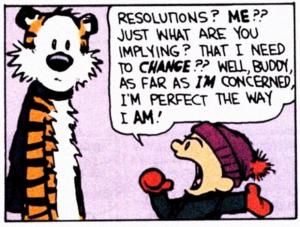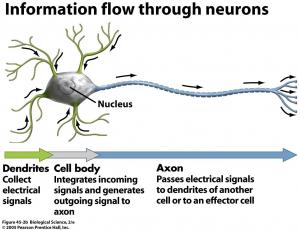Happy New Year! Many of you are likely thinking about changes you want to make in 2020. You want enhanced productivity, more consistent prayer, stronger health. And this is great, we should always be striving to align what we believe to be important with how we act on a daily basis.
But stop before you make any New Year’s resolutions. There is a better way to effect change.
Three reasons not to set New Year’s resolutions
- January 1 is an arbitrary starting point. Why pin your hopes on the start of a new year? Every morning is the beginning of a new day, and the opportunity to grow closer to who you want to be. If you only commit to positive change on January 1, you are missing out on innumerable “new beginnings” throughout the year. It’s never a wrong time to commit to being your best self.
- New Year’s Resolutions foster unhealthy competition. “What are you doing for the New Year?” Hearing about your neighbor’s weight loss plan or your coworker’s reading list can lead to comparison with your own resolutions. Not only does this distract you, it creates guilt and insecurity about your personal habits and goals.
- New Year’s Resolutions don’t work. They are just not an effective way of achieving positive personal growth. You may call to mind a wealth of anecdotal evidence, but science debunks the idea that New Year’s Resolutions are the best way to achieve change.

Why we fail at your New Year’s resolutions
More than eighty percent of New Year’s Resolutions fail within six weeks. That’s the second week of February.
The reason New Year’s Resolutions don’t work is because we think about personal change all wrong. We make a single decision or commitment, and then go all out until we crash and burn. In other words, we lack patience and perspective. We try to conquer our failings all at once through single heroic acts.
Because our approach to personal change is quick and dramatic, it’s unsustainable. We fail to keep our New Year’s Resolution once, and so we quit. We don’t see results right away, so the seed of our new self dies before it can ever blossom.
This approach to habits doesn’t work because it’s incompatible with how our brain is hardwired. Using willpower and motivation for change is extremely costly from an energetic standpoint. And the number one task of our brain is to keep us alive, so it is evolutionarily designed to conserve energy at any cost. The brain is built to take the past of least resistance through life.
In other words, our brain isn’t build to use heroic willpower to stick to New Year’s Resolutions. Rather, it’s built to rely on habits. Sub-conscious thoughts and automatic actions have saved us from predators and helped us find food for millennia. Evolution loves habits, especially habits that are hard to break.
The neuroscience of habits
To understand habits, you need a little neuroscience background.
Two neighboring regions in the brain are responsible for your habitual and goal-directed actions: the dorsal lateral and dorsal medial striatum, respectively. However, the activity of these regions is regulated by the prefrontal cortex, where higher-level decisions and thoughts come into play. As you use your cortex to form a new habit, the connections between your striatal neurons change. In other words, your neural structure is re-organized to support your new habit. It’s these physical changes in your brain structure that allow personal growth.
You have 86 billion brain cells, or neurons, in your brain. Each neuron is connected in overlapping circuits. These circuits are the basis for your particular behaviors, emotions, and memories. Two neurons communicate at a gap called a synapse.

When the synapse is consistently activated, it gets bigger and stronger over time. Stronger synapses make it easier to activate the brain circuit in the future. This is a foundational doctrine in neuroscience, known as “neurons that fire together wire together.” In other words, neurons that are activated together are consolidated into circuits. This consolidation lets you learn skills, store long term memories, and form habits.
So what’s the alternative to New Year’s Resolutions?
Forming good habits is the key to flourishing; our habits constitute our character. But all too often, the narrative about personal change is all about willpower and motivation. And this is not a recipe for effective habit formation.
What’s the best approach to forming habits? How can you best form neuronal circuits that allow you to habitually choose the good?
Based on what we know about the brain, there are three key parts of habit formation. Without them, you are going to waste time and energy, because you’ll be trying to swim against the tide of neurobiology.
Find the rest of this series here.
Further reading recommendations
Aristotelian virtue ethics is a great resource if you’re thinking about habits and character. Try the Nicomachean Ethics. Even better, check out Aquinas on virtue as a habit in the Summa, 1.11 49.1-4, 55.1-2.












